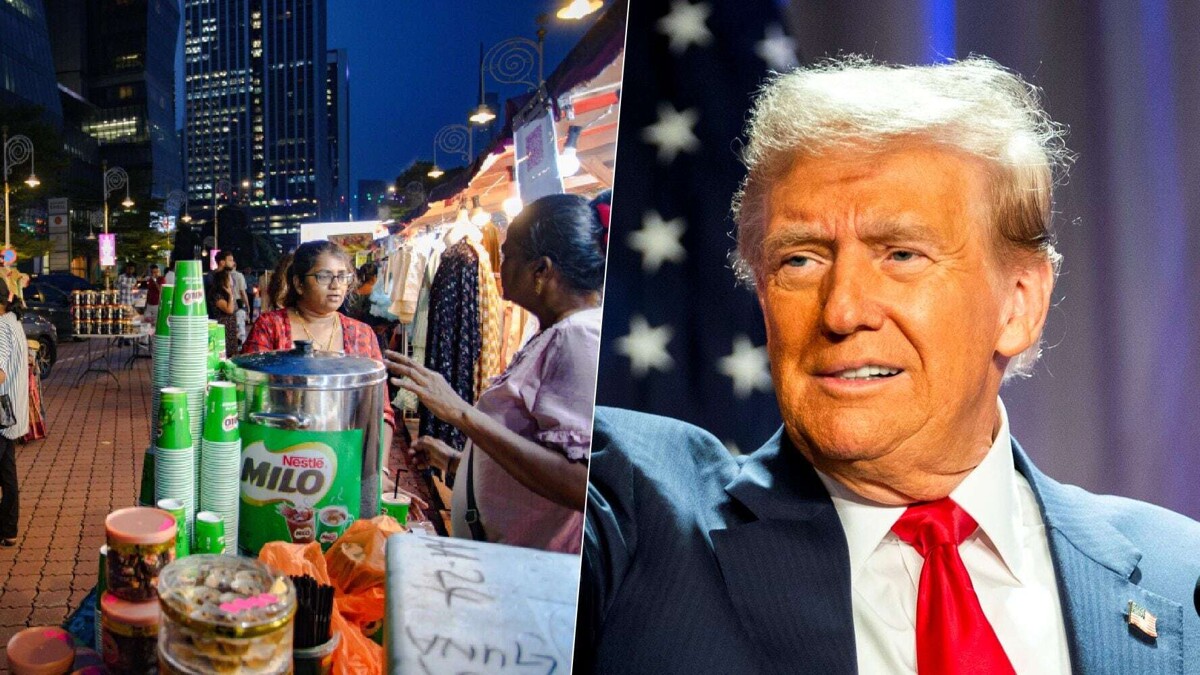
The higher yields of U.S. bonds associated with expectations of larger U.S. deficits are also putting upward pressure on local bond yields in emerging markets. Concerns about the potential impact of Trump's policies have led traders to reduce their bets on interest rate cuts in emerging markets.
The decline has accelerated since Donald Trump's election victory, whose "America first" policies are seen as detrimental to emerging markets and whose economic agenda has pushed up the dollar and Treasury bond yields. "I am losing faith in local debt of emerging markets, as the high likelihood of a new trade war will weaken their currencies and delay the pace of rate cuts," said Rajeev De Mello, global macro portfolio manager at Gama Asset Management SA in Geneva.
The president-elect has threatened to impose tariffs of 60 percent or more on products from China and a universal tax of 10 to 20 percent on imports from all other countries, although details are still unclear. "The risk premiums of all emerging market assets will be higher as a result of the uncertainty surrounding Trump’s policy," said Jon Harrison, managing director of macro strategy in emerging markets at TS Lombard in London.
The outlook for local currency bonds in emerging markets, possibly including Mexico, is deteriorating as investors abandon bets on interest rate cuts, fears of a tariff trade war rise, and the dollar appreciates. The Bloomberg index of local debt from developing countries has fallen 3.5 percent since early October, reducing the year-to-date gain to less than 2 percent.
If sustained, the increase in U.S. yields is likely to weigh on emerging market debt inflows, they said. The average yield of government bonds in emerging markets is now about 10 basis points lower than that of U.S. Treasury bonds, compared to an average premium of about 230 basis points over the last decade, according to Bloomberg indices.
Perhaps the main concern for investors in emerging markets is the impact of the higher tariffs that Trump has promised to implement. A one-year swaps index of 18 emerging economies has risen more than 16 basis points this quarter, heading for its largest quarterly gain in over a year, according to data compiled by Bloomberg.
The rising dollar following Trump's electoral victory is fueling speculation that central banks around the developing world may be forced to delay any planned rate cuts to support their beleaguered currencies. This month, Barclays Bank Plc dismissed its previous prediction that the Bank of Indonesia would cut its benchmark rate in November and December, citing the impact of the appreciation of the U.S. dollar.
An increasing chorus of analysts expects it to exceed 5 percent in the coming months. "The average pain threshold for 10-year emerging market bonds is 4.40 percent, which is close to where 10-year Treasury bonds are trading," wrote Société Générale SA strategists led by Phoenix Kalen in a research note published on November 8. The yield on 10-year U.S. bonds rose to 4.50 percent on Friday, up from a low of 3.60 percent in mid-September.
"Trump has both the motivation and the ability to act quickly and decisively on a broad political agenda, so we expect widespread tariffs and an accelerated decoupling between the U.S. and China." Asian economies and currencies, even outside of China, are considered particularly vulnerable to higher U.S. tariffs due to the region's strong dependence on trade with the world's largest economy.
"Although inflationary pressures in Asia are low, Asian currencies could face additional risks if Trump implements protectionist policies," said Tan Min Lan, head of the Asia-Pacific investment office at UBS AG in Singapore. The easing trajectory of South Korea and Taiwan is also becoming more complicated, wrote bank economists, including Brian Tan and Shreya Sodhani, in a research note published on November 8.
Fears of currency depreciation and rising inflation risks convinced Brazilian authorities to accelerate their adjustment cycle with a 50 basis point rate hike on November 6. The outlook for emerging market bonds is also worsening as the rise in Treasury yields threatens to divert funds away from developing country assets. "Overall, we see negative or low single-digit total returns for the asset class in the next 12 months," said Tan, referring to Asian bonds in local currency.















